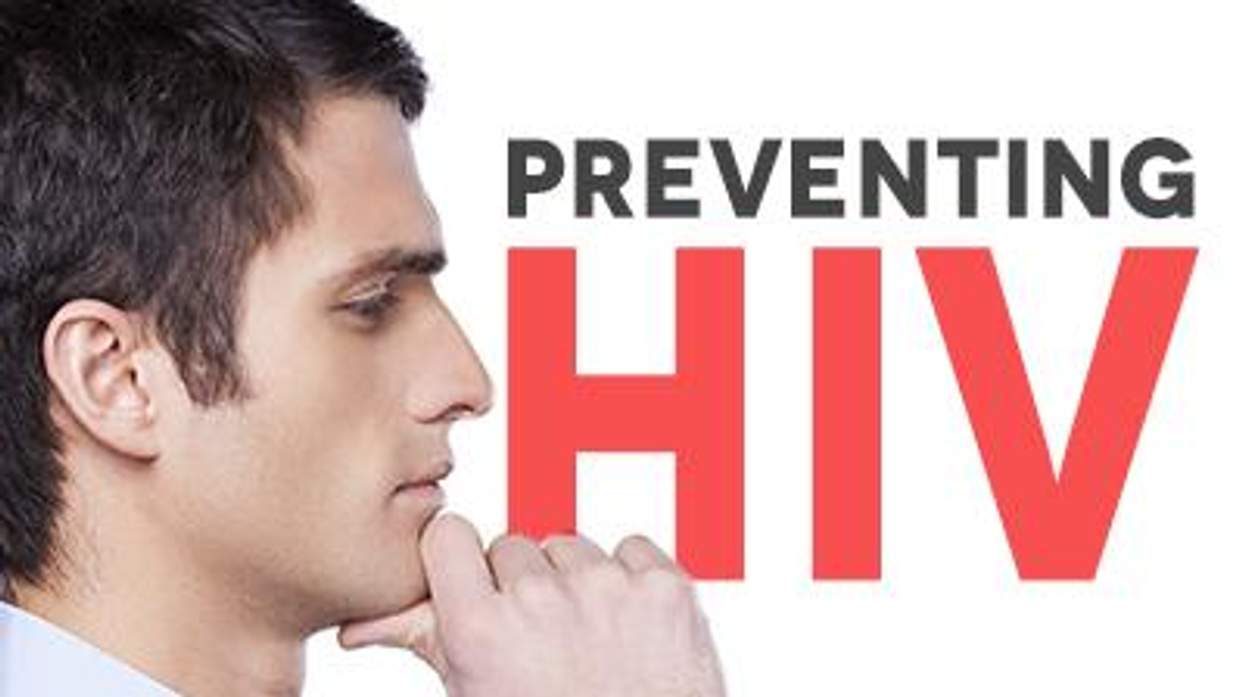The science of sex may be an easy study, but the practice of thinking about science and sex simultaneously can seem impossible. A person may be able to comprehend the science of HIV, but emotions may still lead them to do things that put them at risk.
In an effort to combine the logic of science with the seduction of sex, here are six reasons why we should rethink HIV prevention as we know it.
According to the national Centers for Disease Control and Prevention, 60 percent of young people who are HIV-positive are unaware that they are living with the virus. Some HIV-negative men and women believe that a person who discloses their HIV-positive status pose a risk that is too big to take, but a person who is positive but hasn't been diagnosed carries a higher viral load than someone who is aware of their status and on treatment.
 2. 91 percent of new HIV transmissions can be traced to people who are undiagnosed or never been treated for HIV.
2. 91 percent of new HIV transmissions can be traced to people who are undiagnosed or never been treated for HIV.A new study revealed that HIV-positive people who are undiagnosed or not yet in medical care account for 91 percent of new HIV transmissions. There were more than 1.1 million people living with HIV in 2009, and of those people, 207,600 were undiagnosed, and 519,414 knew they were HIV-positive but were not receiving medical care. Compared to those who were undiagnosed, a person who knew about their status but was not in medical care was 19 percent less likely to transmit HIV. People on treatment are even less likely to transmit HIV than people who are not on treatment.
 3. An undetectable viral load reduces the chances of HIV transmission by 96 percent.
3. An undetectable viral load reduces the chances of HIV transmission by 96 percent.An HIV-positive person who is receiving antiretroviral therapy and who has achieved an undetectable viral load is 96 percent less likely to transmit HIV. In the PARTNER study of serodiscordant couples (a couple with different HIV statuses), no HIV-positive person with a viral load of less than 200 copies per milliliter of blood transmitted the virus to their uninfected partner. And if someone is still uncomfortable with the idea of having a physical relationship with someone who they know is HIV-positive, there is another number that may put them at ease.
 4. Truvada as PrEP has been reported to reduce HIV transmission by 96 to 99 percent.
4. Truvada as PrEP has been reported to reduce HIV transmission by 96 to 99 percent.Studies indicate that, when used daily, Truvada as Pre-Exposure Prophylaxis (PrEP) has been reported to reduce HIV transmission by 96 and up to 99 percent. With treatment as prevention, PrEP, and the use of condoms, there is no longer a reason for fear to be a factor when it comes to sexual or romantic intimacy with someone who has HIV.
 5. Only 3 out of 10 people in the U.S. have HIV under control.
5. Only 3 out of 10 people in the U.S. have HIV under control.The HIV Care Continuum Initiative, a federal government program aimed at monitoring people's progress in care, revealed that even though 86 percent of people living with HIV had been diagnosed, only 30 percent had achieved an undetectable viral load. In other words, only three out of 10 people had the virus under control.
 6. A newly diagnosed person in their 20s can expect to live an additional 51 years.
6. A newly diagnosed person in their 20s can expect to live an additional 51 years.According to the CDC, a person who is diagnosed with HIV in their 20s and enters into the proper treatment can expect to live an additional 51 years from when they are diagnosed. For most people, all it takes to manage HIV is one pill a day. This daily regimen reduces a person's viral load to an undetectable level, and allows them to live without the fear of transmitting the virus.
 What does rethinking HIV prevention look like?
What does rethinking HIV prevention look like?There are many possible factors accounting for why so many people living with HIV are not getting tested and receiving care, but these numbers reveal two undeniable links to HIV infection: the fear of getting tested and the stigma of getting treatment and living openly with HIV.
Get tested and, if you are HIV-positive, get treatment. Encourage your friends to talk about the virus so that no one is living in fear or shame. It is time to rethink HIV prevention as we know it, and put an end to the willful ignorance that keeps people in the dark -- and in danger of contracting or transmitting HIV.















Charlie Kirk DID say stoning gay people was the 'perfect law' — and these other heinous quotes
These are some of his worst comments about LGBTQ+ people made by Charlie Kirk.